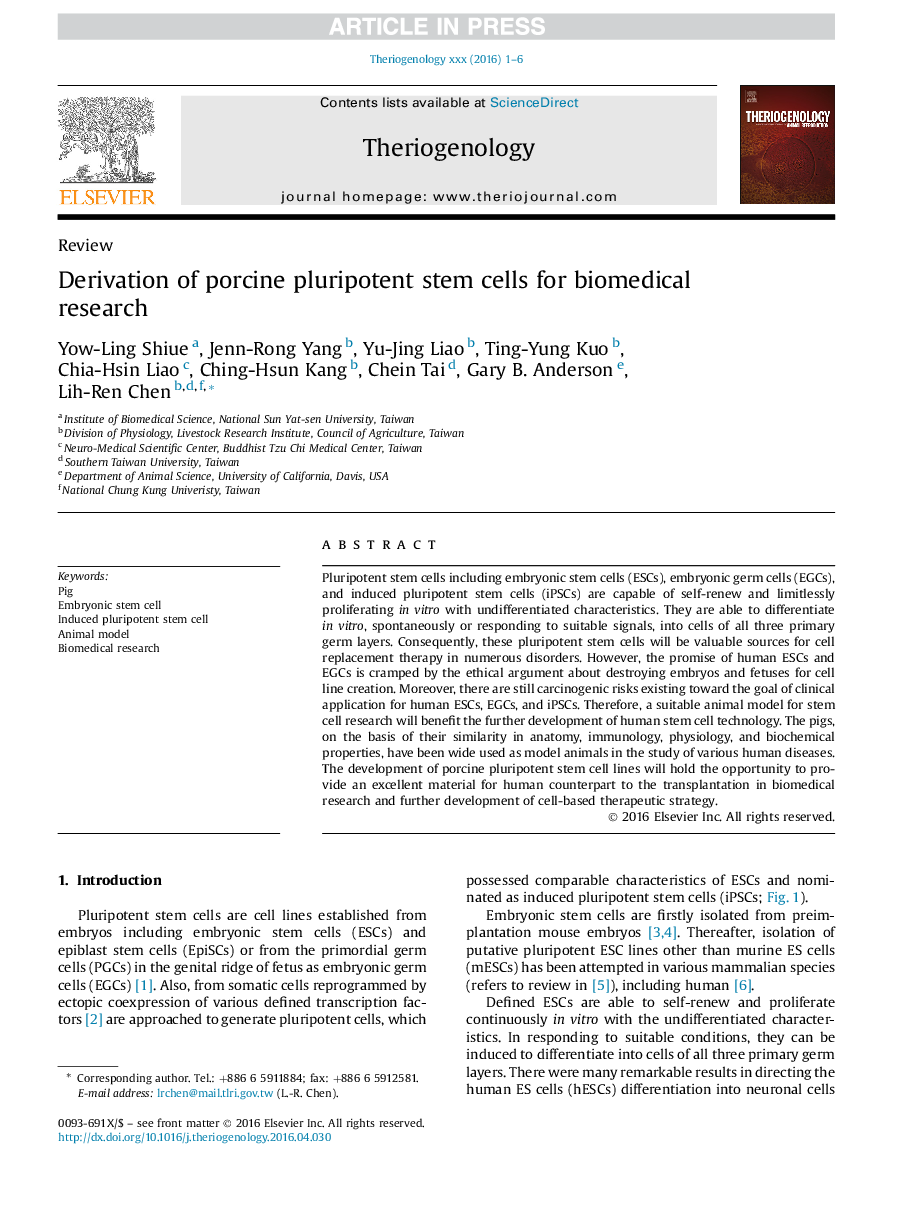| Article ID | Journal | Published Year | Pages | File Type |
|---|---|---|---|---|
| 10891612 | Theriogenology | 2016 | 6 Pages |
Abstract
Pluripotent stem cells including embryonic stem cells (ESCs), embryonic germ cells (EGCs), and induced pluripotent stem cells (iPSCs) are capable of self-renew and limitlessly proliferating in vitro with undifferentiated characteristics. They are able to differentiate in vitro, spontaneously or responding to suitable signals, into cells of all three primary germ layers. Consequently, these pluripotent stem cells will be valuable sources for cell replacement therapy in numerous disorders. However, the promise of human ESCs and EGCs is cramped by the ethical argument about destroying embryos and fetuses for cell line creation. Moreover, there are still carcinogenic risks existing toward the goal of clinical application for human ESCs, EGCs, and iPSCs. Therefore, a suitable animal model for stem cell research will benefit the further development of human stem cell technology. The pigs, on the basis of their similarity in anatomy, immunology, physiology, and biochemical properties, have been wide used as model animals in the study of various human diseases. The development of porcine pluripotent stem cell lines will hold the opportunity to provide an excellent material for human counterpart to the transplantation in biomedical research and further development of cell-based therapeutic strategy.
Related Topics
Life Sciences
Agricultural and Biological Sciences
Animal Science and Zoology
Authors
Yow-Ling Shiue, Jenn-Rong Yang, Yu-Jing Liao, Ting-Yung Kuo, Chia-Hsin Liao, Ching-Hsun Kang, Chein Tai, Gary B. Anderson, Lih-Ren Chen,
